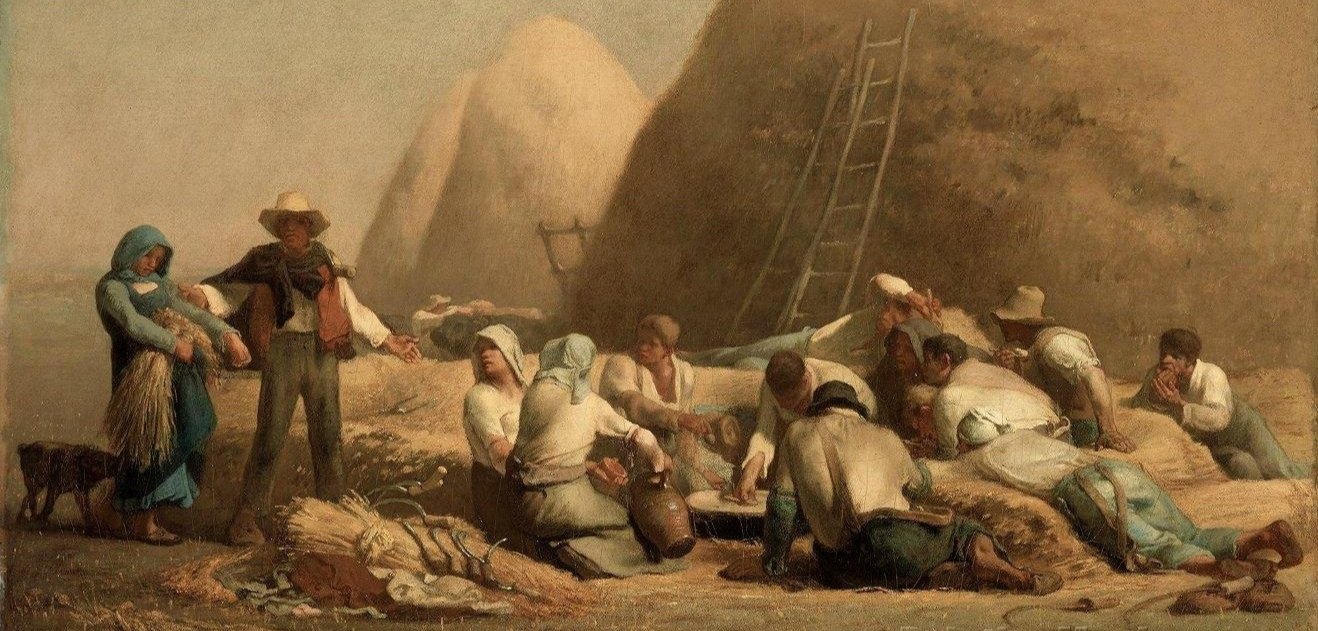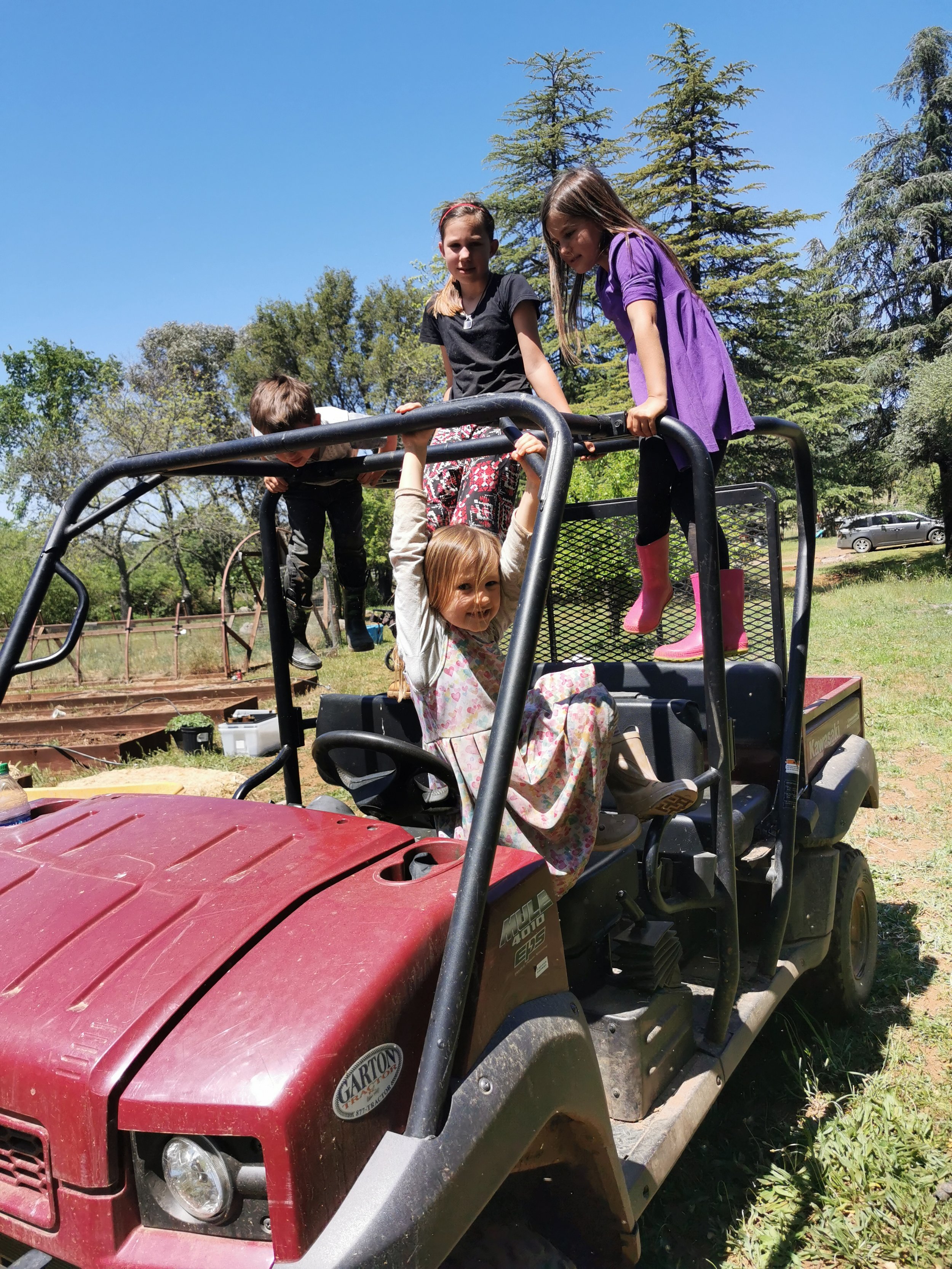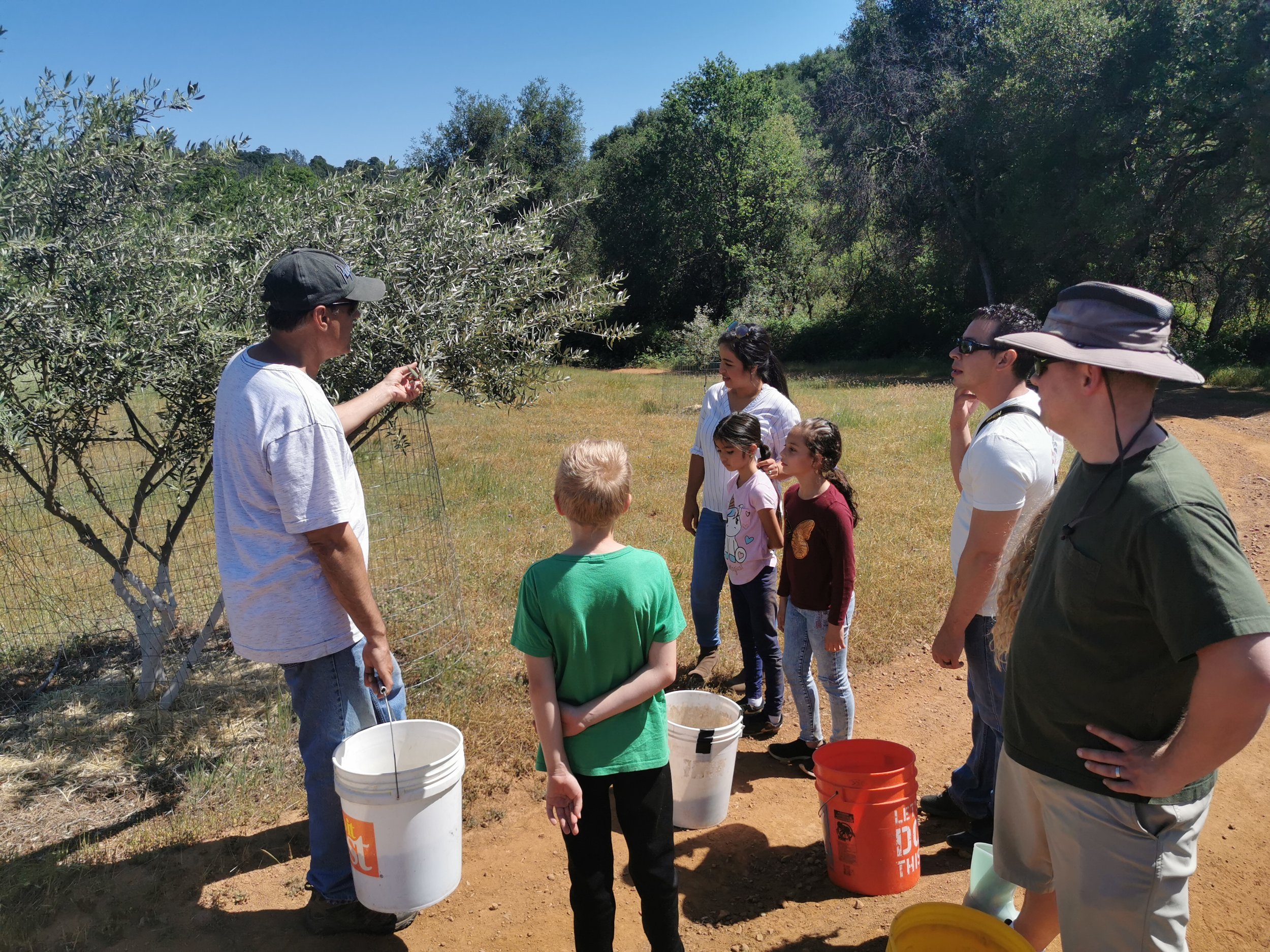An Agrarian Lifestyle
This journal entry highlights an excerpt from our Lifestyle. Our focus here is on FAITH, FAMILY, & FARMING and we invite you to explore this lifestyle further through our founding documents as you discern and plan your own journey in Catholic Homesteading.
Mankind has lived a certain way for about 5,000 years, but in the last 150 years everything has changed. Throughout early history, people lived a predominantly agrarian-based lifestyle where they depended on God and one another for survival. The family needed one another and the neighborhood community thrived in supporting and assisting each other. The extended family was an unbreakable unit that dwelled together, taught each other, and helped one another throughout each stage of life.
In our more recent history, the news was passed by talking together in the town square or church plaza, creating a sense of community. People prayed together, ate together, worked together, and played together. They shared their religion, their prosperity, their struggles, and their joy. People realized the need for one another and shared with each other on a daily basis, thereby establishing bonds of love, bonds of community – bonds of unity.
But today, under the guise of progress, civilization has become uncivilized. Inventions in industry, transportation, and communication have progressed convenience, comfort, and competition, but regressed our sense of community. We went from realizing our dependence on God and one another to thinking that we are self-sufficient and independent. We went from a sense of community to a sense of individualism. This transition has left many souls empty without God, as opposed to a fullness of life with Him. The results of this self-inflicted oppression are staggering statistics of divorce, abortion, and suicide. Individualism has created divorce and death; the break-up of family life resulting in the breakdown of social life. Individualism has broken our unity, thus broken our community.
Yet God invites us to live in His goodness – a unity of life in a community of love, resulting in peace and joy. So let us explore the attributes of our ancestor’s agrarian-based lifestyle to rediscover the advantages it contains in addition to creating unity within the community.
A small family farm reduces the cost of living to help a family work less outside the home. Combining a small farming operation with home schooling and at-home entertainment reduces costs even more. Then, because the family members tend to be at home more often, there is less pressure to buy more stuff or nicer things (because, well; they do). So now mom doesn’t have to work and dad can get home early. So up goes quality time with the family members, and up goes the quality of life for the entire family.
Now there is more work at home rather than more work outside the home. So now we need family work time rather than more individual time. Now we need each other, and that’s a good thing. We need each other to share in the work. We need each other’s prayers. We need to eat, and it’s more enjoyable to eat together. We need recreation so we play together. And we need to rest, and nothing could be better than resting in our own home. So with working, praying, eating, playing, and resting, we now have the five essential components of unity and the time to enjoy them together – to enjoy each other forever.
The small family farm fosters common goals and generates opportunities to work together as a family to achieve those goals. This of course promotes unity between the family members (and extended family members), spiritually connecting them to one another and to God. The small family farm also brings many physical and psychological advantages to the family. It yields good tasting, healthy food, while connecting us back to the earth, back to Creation – back to Christ. “The Lord God then took the man and settled him in the Garden of Eden, to cultivate and care for it.” (Genesis 2:15)
It is important for us to be connected to the earth. We derive a portion of fulfillment through this connection for we were made from it. “The Lord God formed man out of the clay of the ground.” (Genesis 2:7) There is a certain wholeness we receive from working in the ground. It is part of a wholesome life. By connecting back to Creation we connect to our Creator, who generates in us a certain peace, a certain fulfillment, an indescribable satisfaction – a wholeness. “My soul finds rest in God alone; my salvation comes from Him.” (Psalm 62:1)
Maintaining a small farm is hard work. “By the sweat of your brow shall you get bread to eat.” (Genesis 3:19) But God, in His infinite mercy, gives us a certain satisfaction through the human accomplishments resulting from our work. So He didn’t give us work as a punishment, but He provided work as a gift for us. A God-given satisfaction occurs when we reap what we have sown for we receive a wonderful peace while resting after a hard day’s work. And we receive an additional reward as we enjoy eating the fruits of our labor, for there is no greater satisfaction than eating a wholesome meal that was cultivated, planted, nurtured, and harvested with one’s own ingenuity and effort.
God also gives us this work for physical exercise, to strengthen our bodies and to nourish them. Food was meant to be the complete source of our nutrition, as opposed to commercially grown foods, which are generally rich in pesticides and poor in nutrition. With homegrown food there is no need to supplement our diet with vitamins because the food itself is packed with them, as God originally intended.
Homegrown food bursts with flavor. And after working so hard to get it, the wonderful taste and the wholesome satisfaction of growing it ourselves elevates us in thanksgiving for the generosity of God. “The Lord has done great things for us, and we are filled with Joy.” (Psalm 126:3)










